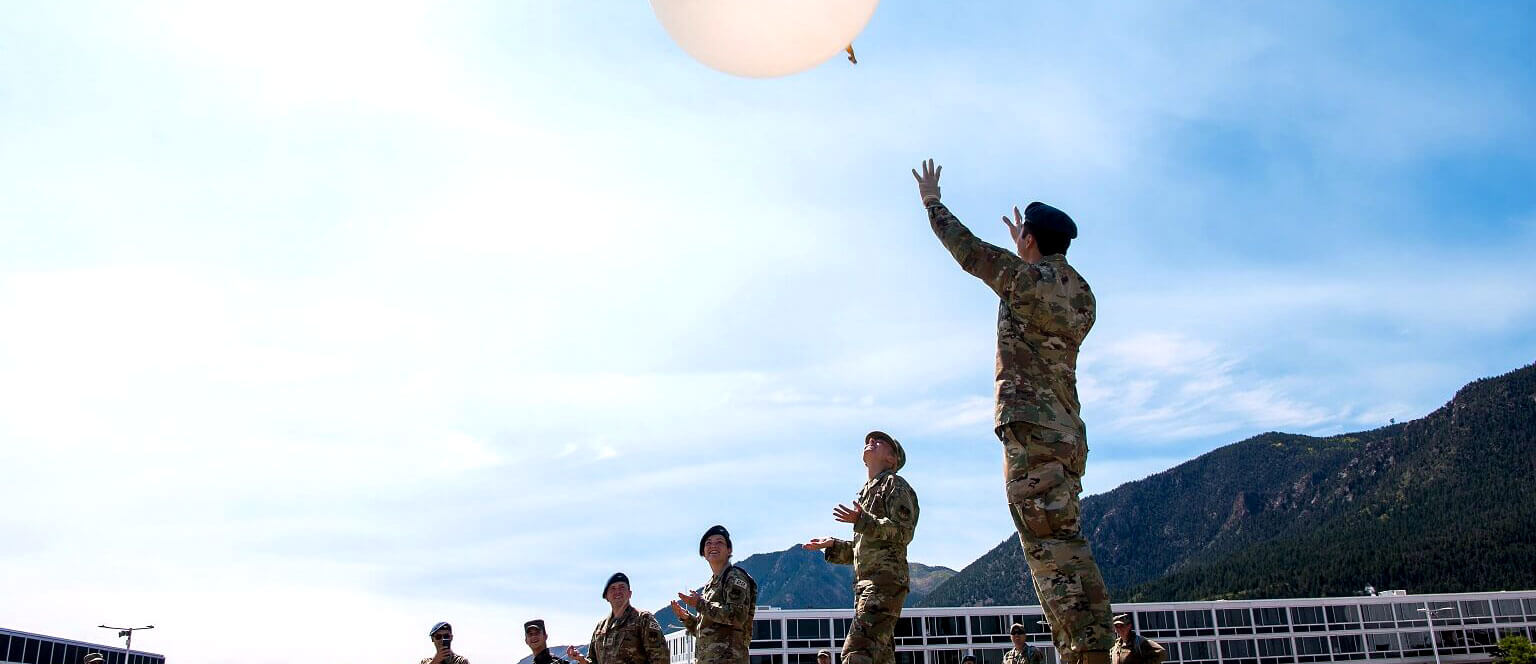Meteorology

From planning deployments and air strikes, to scheduling space launches and issuing proper protective clothing, weather considerations influence many of the decisions made by Air Force officers. Throughout history, weather has played a pivotal role in the outcome and execution of important campaigns—the debacle of Napoleon’s army in Russia, the scheduling of the Normandy invasion and the destruction of Germany’s counter attack in the Battle of the Bulge. Knowledge of the weather is still important in the modern battlefield.
Meteorology is the study of the atmosphere and the weather that it generates. At the U.S. Air Force Academy, the meteorology major uniquely focuses on the impact of weather on military operations. The growth of meteorology and weather forecasting is intimately linked with the emergence and rise of aviation and space power through the 20th and into the 21st century. The basic properties of the atmosphere and resulting weather phenomena are literally of life and death importance to pilots and, consequently, to the Air Force. According to Sun Tzu, “…know the ground, know the weather; your victory will then be total.”
The Meteorology major teaches cadets how to analyze and predict atmospheric behavior over a broad range of time and space scales. These phenomena include small features such as thunderstorms and tornadoes; medium-sized features such as squall lines, hurricanes and blizzards; and even larger features such as continental weather, waves in the jet stream, and climate change.
This program requires a foundation in physics, geospatial science and mathematics, as well as an aptitude for problem solving.
Potential Job Assignments
Within the Air Force
|
Outside the Air Force
Industries – Government, private, universities |
SAMPLE COURSES
- Meteor 320: Meteorology and Aviation Weather
- Meteor 352: Climatology
- Meteor 430: Atmospheric Dynamics
- Meteor 450: Tropical Meteorology
SUGGESTED COURSE SEQUENCE
| 4-DEGREE (FRESHMAN) | 3-DEGREE (SOPHOMORE) | 2-DEGREE (JUNIOR) | FIRSTIE (SENIOR) |
|---|---|---|---|
| Beh Sci 110 Chem 100 Com Sci 110 English 111 Engr 101 For Lang 1 For Lang 2 History 100 Math 141 Math 142 Physics 110 |
Chem 200 Econ 201 English 211 Mech Engr 220 Law 220 Math 243 Math 356 Meteor 320 MSS 251 Physics 215 Pol Sci 211 |
Aero Engr 315 Astro 310 ECE 315 History 300 Math 245 Meteor 330 Meteor 331 Meteor 351 Meteor 352 Meteor 370 Meteor 430 |
Adv Sociocultural Meteor 431 Meteor 450/432 Meteor 451 Meteor 452 Meteor 490 Meteor Elective Meteor Elective Mgt 400 Philos 310 Soc Sci 311 |
VALIDATION AND TRANSFER CREDITS
For information on what classes may receive transfer credits, please speak with an advisor in charge.
CONTACT US
Lieutenant Colonel Kevin Burris
Director of Meteorology
kevin.burris@afacademy.af.edu
Capt Nathan Stanford
Advisor-in-Charge
nathan.stanford@afacademy.af.ed